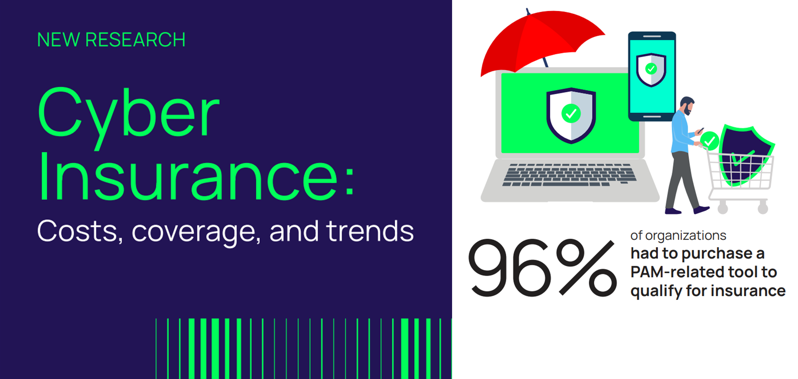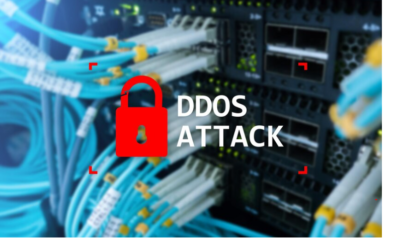Reports
SANS Report: Human Risk Remains the Biggest Threat to Organization’s Cybersecurity

“People have become the primary attack vector for cyber-attackers around the world,” said Lance Spitzner, SANS Security Awareness Director and co-author of the report. “Humans rather than technology represent the greatest risk to organizations and the professionals who oversee security awareness programs are the key to effectively managing that risk.”
After analyzing the data of more than 1,000 security awareness professionals worldwide, SANS Security Awareness, the provider of security awareness training, has released its seventh annual SANS Security Awareness Report. The 2022 report establishes updated global benchmarks for how organizations manage their human risk and provides actionable steps to making improvements with key metrics in the Security Awareness Maturity Model Indicators Matrix to measure progress.
Key findings include:
- Workforce: More than 69% of security awareness professionals are spending less than half their time on security awareness. The data shows that security awareness responsibilities are very commonly assigned to staff with highly technical backgrounds who may lack the skills needed to effectively engage their workforce in simple-to-understand terms
- Global Compensation: Security awareness professionals in Australia/New Zealand had the highest average annual compensation ($121,236), while South America had the lowest ($56,960). In North America, the higher the maturity level of an organization’s security awareness program, the higher the salary for the awareness professionals who work there.
- Top Challenges: The three top reported challenges for building a mature awareness program were all related to a lack of time: specifically lack of time for project management, limits on training time to engage employees, and a lack of staffing.
- Pandemic Impacts: The top two reported impacts were the challenge of a more distracted and overwhelmed workforce and a working environment where human-based cyber-attacks have become more frequent and effective
- Program Maturity by Region: Consistent across all global regions is that current programs’ most common maturity levels are compliance-focused and awareness/behavior change
- Successful Program Indicators: Strong leadership support, increased team size, and a higher training frequency topped the charts as key enablers to program success
Key Action Items to Increase Program Success:
- Action Items to Increase Leadership Support: One of the top ways to increase leadership support is speaking in terms of managing risk, not compliance, and explaining WHY you are doing something, not WHAT you are doing. Additionally, creating a sense of urgency by utilizing data and communicating value by demonstrating alignment with leadership’s priorities
- Action Items to Increase Team Size: Documenting and contrasting how many people on the security team are focused on technology versus how many on the team are focused on human risk, creating a document to explain personnel needs fully, and developing partnerships with key departments that can help develop ways to communicate the program’s value were recommended
- Action Items to Increase Training Frequency: It is recommended that organizations communicate to, interact with, or train their workforce at least once a month. Keeping training simple and easy to follow is the key to increasing your opportunities to engage and train your workforce
Reports
Saudi Arabia’s Non-Oil Sector Powers Economic Growth, Aiding the Real Estate Sector: Savills Riyadh Office Market in Minutes Q4 2023

Despite a projected dip in GDP to -0.5% in 2023 due to strategic oil adjustments, Saudi Arabia’s non-oil sector remained robust at 4.1%, driving the economy towards growth and paving the way for a swift rebound in overall economic growth at 5% in 2024 as oil production in the Kingdom normalises.
The Purchasing Managers’ Index (PMI) for December 2023 held strong at 57.5, reflecting the resilient non-oil sector driven by increasing demand, investment, and exports. This momentum is further fuelled by Saudi Arabia’s ambitious Vision 2030 target of boosting foreign direct investment (FDI) to 5.7% of GDP by 2030, instilling strong investor confidence, particularly among foreign companies.
Ramzi Darwish, Head of Saudi Arabia at Savills Middle East, said: “Riyadh’s office market showcased remarkable agility in Q4 2023, with a 31% surge in office transactions during 2023 compared to 2022. The upward trajectory is expected to continue in 2024, even though rental values will remain stable in Q4 2023, propelled by Vision 2030’s FDI goals, and sustained economic growth.”
The surge in corporate interest is evident as over 180 foreign firms have secured licences to establish regional headquarters (RHQ) in Riyadh, surpassing the initial target of 160. Among these are some of the prominent global corporates that have established their regional headquarters in Q4 2023. reinforcing Riyadh’s status as a magnet for leading players across industries.
Leasing activity tracked by Savills in Q4 2023 revealed legal firms dominating 40% of completed transactions, followed by tech companies, Telecommunication, Media and Technology (TMT) firms, and engineering and manufacturing companies at 20% each. Companies from the pharmaceutical, IT/ITES, and BFSI sectors accounted for 57% of total occupier inquiries.
Interestingly, 70% of inquiries were focussed on office units smaller than 1,000 sqm, indicating a preference for agile, efficient workspaces.
Swapnil Pillai, Associate Director, Middle East Research, Savills, said: “International companies led the surge, contributing to 78% of Q4 2023 inquiries, with the US leading demand at 40%, reflecting growing international interest in Riyadh’s economic potential. The recently announced 30-year tax relief for regional headquarters aligns with Vision 2030 goals.”
Pillai added, “The government’s spending on infrastructure projects is creating significant opportunities and attracting global players to establish a strong presence in the city.”
Amid limited prime office space, the Grade A occupancy rate is estimated at 98%, with stable rents observed in Q4 2023 after a significant y-o-y increase of 18%. North-East Riyadh stood out as it experienced the highest rental increase at 26% y-o-y, followed by Central and Northern Riyadh at 17% y-o-y, highlighting its prime location and limited availability.

A surge in supply of more than 800,000sqm of new Grade A office space is likely to be completed by 2025 to respond to the strong increase in demand. This should offer more options for tenants, potentially mitigating dramatic price increases while also catering to sustained demand levels.
Reports
Delinea Research Exposes Cyber Insurance Gap: Companies and Providers Clash Over Coverage Terms

Delinea has seamlessly extended Privileged Access Management (PAM) and published its 2023 State of Cyber Insurance report, finding that a significant gap is emerging between insurance carriers and organisations who are still scrambling to get affordable, comprehensive coverage. The report found that the time and effort to obtain cyber insurance is increasing significantly, with companies requiring six months or more skyrocketing yearly.
The survey, conducted by Censuswide on behalf of Delinea, looked to uncover new trends and evolving patterns since a similar report last year, which established that the demand for cyber insurance was at a fever pitch. This year, companies that used their cyber insurance more than once increased to 47%, while 67% of respondents noted that their insurance rates increased 50-100% upon application or renewal.
However, the survey found that there is an increasing list of exclusions that could make cyber insurance coverage void, including lack of security protocols in place (43%), human error (38%), acts of war (33%), and not following proper compliance procedures (33%). Even if organisations can get or renew cyber insurance policies they can afford, their claim may get denied or reduced because of the fine print.
“Over the past year, it’s become evident that cyber insurers are learning from their data and are now maturing. In the early days of cyber insurance, they were just trying to address a huge demand, but now they realise they must reduce their own exposure to both avoidable and uncontrollable circumstances,” said Joseph Carson, Chief Security Scientist and Advisory CISO at Delinea. “Our survey results find that most organisations are not approaching cyber insurance with the same diligence – they are simply looking to get covered. What they’re not checking is whether the policy they had last year is what they need now, or if their policy changed at renewal. This ‘cyber insurance gap’ could put a lot of organisations in a tough place when a cybersecurity incident occurs, and they want to utilise this financial safety net.”
That said, many organisations continue investing in cybersecurity solutions to protect their organisations and meet increasing requirements for cyber insurance. Ninety-six per cent (96%) of organisations purchased at least one security solution before their application was approved. Furthermore, 81% received the budget they needed to get their desired cyber insurance policy, with 36% of respondents noting that it is now a requirement from Boards of Directors and executive management teams.
Considering that most cyberattacks involve stolen credentials, it’s no surprise that insurance providers require related security controls. About half of respondents reported that Identity and Access Management (51%) and Privileged Access Management (49%) controls are required by their cyber insurance policies. Again, leadership is making the budget available as 50% purchased IAM solutions, 45% acquired a password vault, and 44% acquired PAM controls needed to secure their coverage.
“If organisations don’t already have these access control solutions, it’s time to implement them before they shop for or try to renew cyber insurance. These are essential security controls to add to cybersecurity strategies, along with basics like anti-malware software, data encryption, firewall and intrusion detection, patching, and vulnerability management,” Carson continued.
Reports
UAE Workforce Assert Networking Technology Must Evolve in the Next 5 Years: Juniper Research

Juniper Networks, a leader in secure, AI-driven networks, has announced initial findings of an international research project that shows a highly positive mindset and attitude amongst IT decision-makers and the workforce in the UAE towards networking technology’s strategic influence in leading the experience-first digital economy.
The research, conducted by Vanson Bourne on Juniper’s behalf, surveyed 650 IT decision makers and 1,200 office workers from mainstay sectors of the economy across eight countries, including the UAE. The IT decision-maker respondents are directly involved in their organization’s digital strategy, technology investment plans, and development. The research gauges the sentiment and perceptions of IT decision-makers and the workforce in the UAE in the context of its Centennial Plan 2071 prioritizing digitization.
The findings provide insights into three themes: intelligent networking, security challenges, and sustainability in networking.
Intelligent network in building a resilient digital strategy: Emphasizing the strategic importance of an organization’s network in successful digital transformation is viewed as critically important/important by 93 percent of respondents in the UAE, while 87 percent highlighted their views on this are very likely/likely to change in the next two years. In terms of elements that drive investment in developing a network-driven digital strategy, 38 percent agree that the UAE Government’s digital vision and guidelines are the main drivers, while 25 percent said organizations in other industry sectors succeeding via digital, influence their leadership.
Narrowing it down to whether the leadership of an organization is willing to embrace network-driven digital transformation, 92 percent of IT decision-maker respondents in the UAE said their organization’s leadership will be able to do so in the next five years. In addition, 98 percent of these respondents believe that networking technology approaches will need to radically evolve within the same timeframe.
However, only 28 percent of UAE respondents believe that the single greatest opportunity a digital strategy provides is empowerment to create and deliver new service offerings. Twenty-two percent of respondents said the digital strategy is important to deliver consistent customer experiences, while nearly as many highlighted it helps to maintain market relevance (20 percent) and build competitor differentiation (also 20 percent).
Security in the era of the experience-first economy: The research found that 64 percent of IT decision-maker respondents in the UAE consider keeping company data and assets secure over non-corporate networks as a top networking challenge for hybrid working. Furthermore, 73 percent of office workers expect a conflict between the need for increasingly stringent security policies and having seamless access to the network.
Sustainability in networking: 92 percent of respondents in the UAE feel networking is important to contribute toward climate change measures. 91 percent of respondents also want to see more action from their organization in the next two to five years.
Yarob Sakhnini, Vice President, Emerging Markets, EMEA at Juniper Networks, comments, “the UAE remains the hub for technology advancement and innovation in the Middle East region and is on its way to reaching its goal to become a global benchmark. As more and more organizations amplify their digitization efforts across the customer journey, it is key for them to understand the role intelligent networking plays in all aspects of business, from operations to customer interactions. This research affirms that organizations and the workforce in the UAE are aware that succeeding in the experience-first economy will require openness to change. With transformation also comes challenges, but by leveraging the capabilities of a network-driven digital strategy, the possibilities are endless to unlock enterprise value, enhance experiences and help meet the objectives of the UAE Centennial Plan 2071.”
Methodology
In June 2022, Juniper Networks commissioned Vanson Bourne to conduct primary research on organizations to determine the perceptions of IT decision-makers and the workforce in the UAE on the future of networking. The research was conducted across more than 30 industries, including local government, technology, healthcare, retail, energy, manufacturing, and transport.
-

 Tech Interviews2 months ago
Tech Interviews2 months agoNavigating the Cybersecurity Landscape in Hybrid Work Environments
-

 Tech Features3 months ago
Tech Features3 months agoHow Telecommunications Providers Can Best Tackle DDoS Attacks
-

 Tech News4 months ago
Tech News4 months agoGoogle Appoints Ziad Jammal as Google Cloud Country Manager in the United Arab Emirates
-

 Tech News5 months ago
Tech News5 months agoSenet enters MENA’s Competitive Gaming Scene with ‘skill-to-earn’ Platform
-

 Automotive2 months ago
Automotive2 months agoAl-Futtaim Automotive Builds On 23-Year Legacy of Trust & Leadership in UAE’s Pre-Owned Car Market to Sell Over 25,000 Used Vehicles in 2023
-

 Tech News2 months ago
Tech News2 months agoBrighton College Abu Dhabi and Brighton College Al Ain Donate 954 IT Devices in Support of ‘Donate Your Own Device’ Campaign
-

 Events3 months ago
Events3 months agoIntegrator Media Successfully Hosts the Corporate SME Open 2024, Revolutionizing Networking in the SME Sector
-

 News7 months ago
News7 months agoSurveySparrow Expands Footprint in MENA Region with Regional Office and State-of-the-art Data Center












